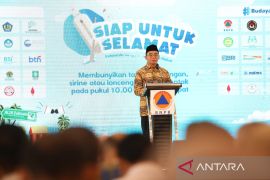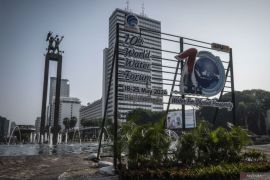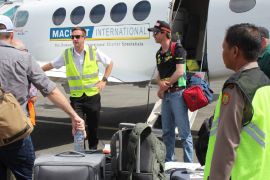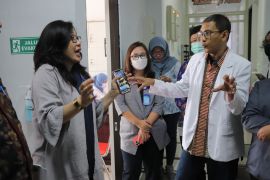It is the language of a minority group of people in two villages, West Oirata and East Oirata, on the island of Kisar in Southwest Maluku district, Maluku province.
Based on 2010 census of population, the two villages have a total population of 1,566, but only a few of them are able to communicate in Oirata language and the rest use Ambonese Malay dialect in their daily interaction.
"Consequently, Oirata language is classified into an endangered language in Indonesia," said Soewarsono, a researcher from the Indonesian Institute of Sciences (LIPI) in a seminar here on Thursday.
Concerned about the existence of the Oirata language in such a situation, Suwarsono and two other researchers from LIPI, Nazaruddin and Leolita Masnun, studied the language and the culture in 2011 and 2012.
Soewarsono said that according to UNESCO`s Ad Hoc Group on Endangered Languages, there are nine factors that can determine the viability of a language, its function in society and the type of measures required for its maintenance or revitalization.
Among the nine factors that happen to the existence of Oirata language are the inter-generational language transmission, absolute numbers of speakers, proportion of speakers within the total population, and amount and quality of documentation.
Based on their study, Soewarsono said they found that inter generational language transmission and the proportion of speakers within the total population continued to decline.
"We have found that the speakers of over 50 years old continue to switch from Oirata language to Ambon Malay dialect when speaking to their children and grandchildren at home," Sowarsono noted.
But he added that the language plays an important role in social structure of Oirata people because every clan in the two villages has its own unique myth that can be told in Oirata language during the customary system of marriage.
"However, the number of speaker in the customary system of marriage also continues to decrease with the passing of time," Soewarsono went on.
Meanwhile, Nazarudin said his team of researchers in 2013 will focus their study on the development of orthography, the system of spelling, as part of an effort to revitalize the Oirata language.
"During our research this year we will try to find the best possible solution to the problem of Oirata language in our effort to revitalize and develop the language and culture," Nazarudin said.
Citing a statement by the Summer Institute of Linguistics (SIL), the linguistics teacher of the University of Indonesia said a people`s identity and culture are intimately tied to their language.
He said words that describe a particular cultural practice of idea cannot be translated precisely into another language.
Nazaraudin noted that Oirata is one of many endangered languages
which has rich oral cultures with stories, and myths passed on to younger generations but not in written forms.
"Thus if the people of Oirata lose their language, they will as well lose their culture and their moral substance," he noted.
Parents in the villages of West and East Oirata are no longer teaching their language to their children and are not using it actively in everyday conversation.
Nazarudin explained that the development of the orthography of Oirata language would be the first step in the effort to maintain the language from extinction.
He added that the documentation they did during their research in the previous years was limited to basic conversation and speech in traditional wedding ceremonies.
"Therefore this year we will expand the documentation of Oirata language into education and transactional domains," he said.
Nazarudin said they have documented the vocabularies of Oirata language into a dictionary, and the structure of the language into a teaching material to be taught at local schools.
According to him, the expansion of the language in these two domains was considered important for the communities of the two villages to be able to interact in their own language.
Both Soewarsono and Nazarudin reiterated that the endangered Oirata language must be preserved and maintained so long as parents in the two villages teach the language and culture to their children and grandchildren.
The Oirata tribe in the small island of Kisar live together with the Maher tribe who speak their own respective language.
Yoseph Kamanasa, a native speaker of Oirata, said he realized his mother tongue was under threat of becoming endangered because they have to deal with the language of Meher tribe who have much more speakers.
But he explained the people of Meher cannot understand nor speak the language of Oirata but Oirata people can speak and understand Meher language.
Kamanasa, a retired teacher, has even taken the imitative in creating a small dictionary of Oirata in his effort to maintain and revitalize his mother tongue.
Therefore he pointed out that he would continue to encourage his children and others to preserve their language and identity. (*)
Reporter: Otniel Tamindael
Editor: Otniel Tamindael
Copyright © ANTARA 2013











